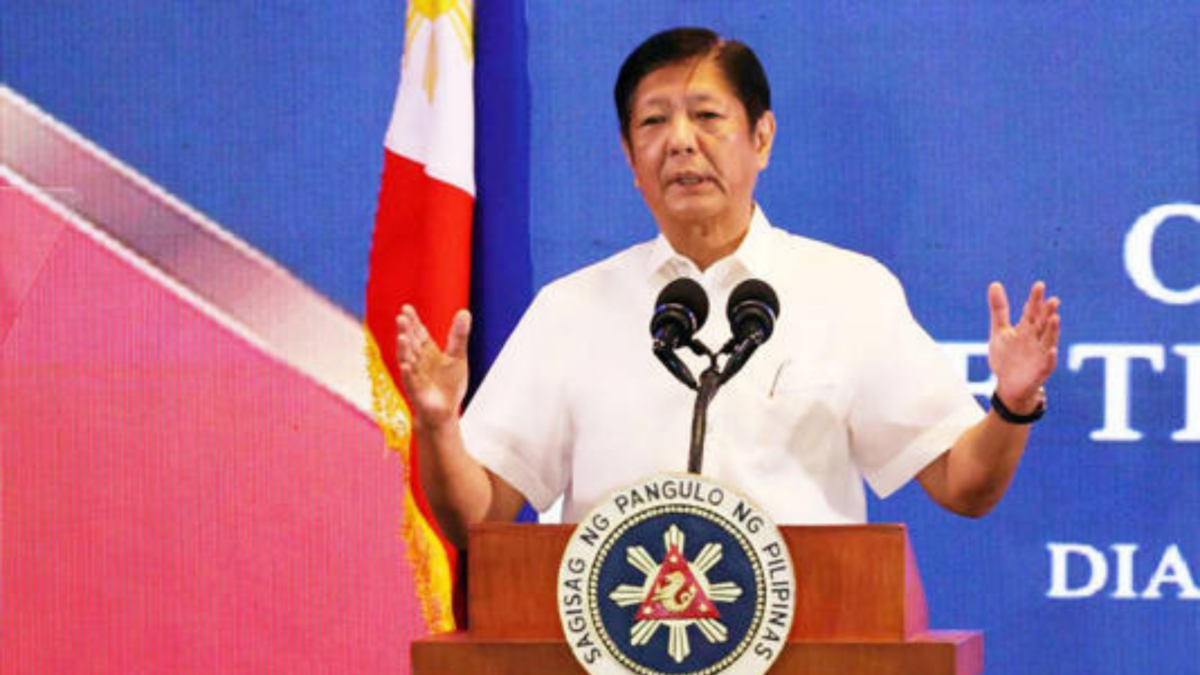
President Ferdinand Marcos Jr. —KJ Rosales/PPA Pool
MANILA, Philippines — Parties in the opposition are divided in terms of President Ferdinand Marcos Jr.’s latest order, which created a special committee that will task government agencies to enhance mechanisms for the protection of human rights in the country.
Former Senator Leila de Lima on Monday said Marcos’ move to create a human rights body is a correct move, and shows the intention of the administration to prioritize the protection of Filipinos’ rights.
One thing that the Marcos administration must ensure though, according to De Lima, is to ensure that the Commission on Human Rights (CHR) and other non-government organizations involved in the protection of human rights to be involved — so that it will not be a mere echo chamber.
READ: Marcos creates special committee for human rights protection in PH
“BBM’s creation of a human rights coordinating body is a step in the right direction. It shows that his administration is prioritizing human rights and intends to engage the issue at a higher and more focused level,” De Lima, a former CHR chairperson who is currently spokesperson of the Liberal Party (LP), said in a statement.
Feedback, consultation from the CHR
“However, the body should institutionalize feedback and consultation from the CHR and human rights NGOs so as not to become an echo chamber of government propaganda of its human rights record. The body has a lot of work to do. It should start working ASAP but first it should set the right direction,” she added.
According to the Presidential Communications Office (PCO), Marcos has issued Administrative Order (AO) No. 22 creating a so-called inter-agency “super body” which will require government agencies to boost and promote universal human rights protection.
READ: Abolish the outdated NTF-Elcac – UN Special Rapporteur Khan
The special committee will be headed by the executive secretary and co-chaired by the Justice secretary, with the heads of the Department of Foreign Affairs and the Department of Interior and Local Government as members.
“It is imperative to sustain and enhance the accomplishments under the UNJP, which is set to expire on July 31, 2024, through the institutionalization of a robust multi-stakeholder process for the promotion and protection of human rights in the Philippines,” Marcos stated in the AO.
READ: Groups renew call for the abolition of task force vs communist rebellion
Nothing special
But another opposition figure in former Bayan Muna Rep. Carlos Zarate believes there is nothing special about AO No. 22, saying that Marcos could show his commitment to human rights by first abolishing the National Task Force to End Local Communist Armed Conflict (NTF-Elcac).
“Nothing special regarding this committee as it is just another bureaucratic layer to make the Marcos Jr. administration acceptable in the community of nations where human rights is of paramount concern,” Zarate said in a separate statement.
“If Marcos Jr. is truly sincere in the promotion and protection of human rights, his administration should start by abolishing the NTF-Elcac, the main government machinery created by his disgraced predecessor that promotes and enables the massive and grave violation of human rights in the country these past years and until now,” he added.
Zarate and other members of progressive have consistently called for NTF-Elcac’s abolition, especially after United Nations Special Rapporteur Irene Khan said that the task force must be stopped because the conditions for which it was created are already outdated.
No duplication of mandate
At least two members of the House of Representatives’ Majority bloc — Ako Bicol party-list Rep. Raul Angelo Bongalon and La Union 1st District Rep. Francisco Paolo Ortega — said that the AO No. 22 will allow for a better coordination between stakeholders in the human rights sector.
Bongalon also believes this is not a duplication of CHR’s mandate.
“We welcome this as a positive development and I do not see it as a duplication with the independent body, which is the [CHR]. We have to remember that the Philippines as a country has also an obligation in the international community, and as a matter of fact we are party to various treaties wherein we uphold the human rights as part of unit of declaration of human rights,” Bongalon said.
“Our country has been a party to treaties and and having said that, we see this as a a coordinating procedure. And when we speak of coordination, we would implement new measures. It starts with coordination. So, this body will serve as a bridge, they can complement the functions of the CHR and so that we can come up with the best solution on how we can protect and solve human rights violation in our country,” he added.
Ortega meanwhile said that while he supports the President’s initiatives, there may be laws or regulations that have to be crafted for the ‘super body’ to function.
“It is being done by the local government, international governments, all of these are accompanied by policy, accompanied by, an appropriate IRR (Implementing Rules and Regulations). So, if they would build that, they might need legislation, or additional processes, then we will have to see on the side of the House because these can be referred to committees, then we will move on from there,” he said.
“But we join the President on this action because it’s not just Human Rights but also, it’s on a bigger scale, our alignments, what the President does, of course with the West Philippine Sea, the policies he implements should very much align with other country,” he added.